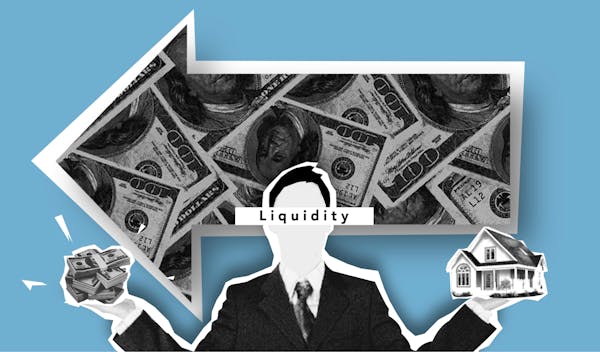This article may contain references to products or services from one or more of our advertisers or partners. We may receive compensation when you click on links to those products or services. Nonetheless, our opinions are our own.
The information presented in this article is accurate to the best of our knowledge at the time of publication. However, information is subject to change, and no guarantees are made about the continued accuracy or completeness of this content after its publication date.
When it comes to navigating the world of finance, understanding the intricacies of various terms and practices can feel overwhelming. One such term that often comes up in discussions about loans and credit is ”hypothecation.” You might have encountered it while exploring financing options for a home, a car, or even business ventures.But what does it really mean, and how does it impact you? In this article, we’ll break down everything you need to know about hypothecation, from its definition to its practical implications. By the end, you’ll have a clearer understanding of how this financial concept plays a crucial role in securing loans and what it means for your financial decisions. Let’s dive in and demystify hypothecation together!
- Understanding Hypothecation and Its Importance in Personal Finance
- The Mechanics of Hypothecation: What You Should Know
- Benefits of Hypothecation: How It Can Work for You
- Risks and Considerations: What to Watch Out For
- Practical Steps to Implement Hypothecation in Your Financial Strategy
- Making Informed Decisions: Evaluating Whether Hypothecation is Right for You
-
Frequently Asked Questions
- What is Hypothecation?
- How does Hypothecation work?
- What types of loans commonly use Hypothecation?
- What are the benefits of Hypothecation?
- What are the risks associated with Hypothecation?
- How does Hypothecation differ from other forms of collateral agreements?
- Can you hypothecate multiple assets for one loan?
- What should you consider before hypothecating an asset?
- Is Hypothecation only applicable to individuals, or can businesses also use it?
- How is Hypothecation treated in bankruptcy?
- Recommended Reads
Understanding Hypothecation and Its Importance in Personal Finance
When delving into personal finance, understanding hypothecation can significantly influence your financial journey. At its core, hypothecation involves pledging an asset as collateral to secure a loan while retaining possession of that asset. This can come into play with various loans,such as mortgages or car loans,where the asset you’re borrowing against serves as a safety net for the lender. This arrangement not only facilitates easier access to funds but also enables you to manage your cash flow more effectively, knowing your asset isn’t relinquished despite being leveraged.
Here are a few key points to consider about hypothecation:
- Risk Management: It offers a way to mitigate risk for both lender and borrower. You maintain use of the asset while the lender has assurance for repayment.
- Affecting Interest Rates: Generally, hypothecated loans come with lower interest rates, which can save you money over time.
- Asset Liquidity: Once you understand the implications, it can provide access to liquidity without the need to sell off your valuable assets.
Below is a simple comparison of hypothecation in common personal finance scenarios:
| Loan Type | Asset | Benefits |
|---|---|---|
| Mortgage | Home | Lower interest rates, potential for home thankfulness |
| Auto Loan | Car | Access to transportation while financing |
| Personal Loan | Other assets (e.g., savings accounts) | Increased borrowing capacity without asset loss |
By grasping the concept of hypothecation in your financial decisions, you’re better equipped to utilize your assets strategically, paving the way to smarter borrowing and enhanced financial health.
The Mechanics of Hypothecation: What You Should Know
When you think about hypothecation, it frequently enough brings to mind the mechanics of lending and credit. Basically, hypothecation involves using an asset as collateral for a loan while retaining ownership. In this way, you can secure financing without losing control of your property. This is commonly seen with mortgages,where the home serves as collateral until the loan is repaid. Understanding this process can empower you to make informed decisions regarding your finances.
Here are some essential points to consider when dealing with hypothecation:
- Ownership Rights: Remember, you still own the asset even though it’s being used as collateral. This means you can benefit from any appreciation in value.
- Impact on Credit: Hypothecating an asset can affect your credit score, especially if you default on the loan.
- Documentation: Ensure you keep all relevant documents related to the hypothecation, including loan agreements and assessment reports.
To help you understand the process better, here’s a simple breakdown:
| Step | Description |
|---|---|
| 1 | Select an asset |
| 2 | Approach a Lender |
| 3 | Agree on Loan Terms |
| 4 | Complete Documentation |
| 5 | Receive Funds |
By understanding these mechanics, you can navigate the realm of hypothecation confidently and utilize it to your advantage in financing your goals.
Benefits of Hypothecation: How It Can Work for You
Hypothecation offers you a unique avenue to secure financing without the need to liquidate assets, making it an attractive option for many. when you hypothecate an asset, such as a property or a portfolio of securities, you retain ownership while using the asset as collateral for a loan. This means you can still benefit from its appreciation or any income generated, such as rental income or dividends, while getting access to necessary funds. Imagine being able to finance a new venture or cover unexpected expenses without sacrificing your existing assets!
Here are some noteworthy advantages:
- Retain Ownership: You keep your asset, leveraging its value for greater financial flexibility.
- Lower Interest Rates: Loans secured through hypothecation often come with lower interest rates compared to unsecured loans.
- Tax Benefits: In some cases, the interest on loans may be tax-deductible, reducing your overall financial burden.
- Cash Flow Management: Easily access funds while maintaining cash flow from your asset.
| Type of Asset | Potential Loan Amount | Benefit |
|---|---|---|
| Real Estate | Up to 80% of Market value | Retain rental income |
| Investments | Up to 50% of Portfolio Value | Continue earning dividends |
| Cars | Up to 100% of Vehicle Value | Maintain ownership for personal use |
Ultimately, hypothecation can not only empower you with financial leverage but also enhance your ability to reach your goals faster. By understanding its mechanisms and benefits, you can make informed decisions that align with your financial aspirations, allowing you to navigate through your financial landscape with confidence.
Risks and Considerations: What to Watch Out For
While hypothecation can offer notable benefits, especially in terms of leveraging assets for better financial opportunities, it’s essential to consider the associated risks. Understanding these risks can empower you to make informed decisions. Here are key aspects to keep in mind:
- Market Fluctuations: The value of the asset used as collateral may decrease, perhaps leading to a situation where your debt exceeds the asset’s worth.
- Interest Rate Risks: Should interest rates rise, your repayment obligations may increase, placing a strain on your finances.
- Loss of Asset: If you fail to meet your repayment terms, the lender has the right to seize the asset you hypothecated, which could be detrimental to your financial situation.
- Impact on Credit Score: Defaulting on a hypothecated loan can negatively impact your credit,affecting your ability to secure loans in the future.
| Description | Potential Outcome |
|---|---|
| Collapsing Asset Value | Increased debt burden |
| Rising Interest Rates | Higher payments |
| Loan Default | asset forfeiture |
By acknowledging these factors, you can develop strategies to mitigate risks, such as maintaining a buffer of savings, regularly reviewing your financial position, and understanding the specifics of your loan agreements. your financial journey is personal, and being proactive in navigating potential pitfalls could pave the way for a more secure future.
Practical Steps to Implement Hypothecation in Your Financial Strategy
Incorporating hypothecation into your financial strategy can significantly enhance your borrowing power while minimizing risks. Start by evaluating your current assets, as these can be put to work as collateral. This means carefully assessing items such as real estate, stocks, and even personal property. Openness is key here; ensure that the value of these assets is clear to all parties involved.Next, consider reaching out to lenders who offer hypothecation as part of their loan products. Having open conversations with them about your financial goals and explaining your asset base can definately help tailor the terms of your agreement to suit your needs.
After selecting a lender, you’ll need to draft a hypothecation agreement detailing the terms, including:
| Term | Description |
|---|---|
| Loan Amount | The total funds being borrowed against the hypothecated assets. |
| Interest Rate | The rate at which interest will accrue on the loan. |
| Repayment Terms | How and when you will repay the borrowed amount. |
Always read through the fine print, paying special attention to any clauses that might affect you in the long run. Additionally, monitor your financial health and stay disciplined in repayment to ensure that your assets are never at risk. By integrating hypothecation into your financial plans, you’re effectively leveraging your existing wealth while pursuing new opportunities for growth. Always seek professional advice to find the best fit for your personal situation.
Making Informed Decisions: Evaluating Whether Hypothecation is Right for You
When contemplating whether hypothecation aligns with your financial goals, it’s essential to weigh the pros and cons carefully. This process allows you to leverage an asset, such as a property, to secure a loan. Though, it’s crucial to evaluate your situation before diving in:
- Your Financial Stability: Do you have a steady income and a solid plan for repayment?
- Risk Tolerance: Are you comfortable with the possibility of losing your asset if unable to meet loan obligations?
- Purpose of the Loan: will the borrowed funds be used for investment opportunities, or is it for immediate necessities?
Next, consider creating a simple table to organize your thoughts:
| Factors | Yes | No |
|---|---|---|
| Do you have an emergency fund? | ✔️ | ❌ |
| Can you handle risks involved? | ✔️ | ❌ |
| Have you factored in all potential costs? | ✔️ | ❌ |
By reflecting on these considerations, you can make a well-informed decision about whether hypothecation is the right route for you. Trust your instincts, but also remember to gather all necessary details to make the best choice for your financial future.
Frequently Asked Questions
What is Hypothecation?
Hypothecation refers to the practise of using an asset as collateral to secure a loan while retaining ownership of that asset. it allows borrowers to obtain financing without having to surrender possession of the asset, which could be property, inventory, or other valuable items.
How does Hypothecation work?
When you hypothecate an asset, you give the lender the right to take possession of it if you default on the loan. The lender typically registers this agreement, and while you maintain use of the asset, they hold a legal claim to it until the debt is repaid. This arrangement provides a level of security for the lender while allowing you to access funds.
What types of loans commonly use Hypothecation?
Hypothecation is commonly used in various types of loans,including mortgages,auto loans,and business financing. it’s particularly prevalent in situations where a borrower wants to leverage their existing assets to secure additional funding.
What are the benefits of Hypothecation?
One of the primary benefits of hypothecation is the ability to access funds without losing possession of your asset. It can lead to lower interest rates as the loan is secured by collateral. Additionally, it allows you to continue using the asset, whether it’s a vehicle or real estate, while still borrowing money against its value.
What are the risks associated with Hypothecation?
The main risk of hypothecation is that if you fail to repay the loan, the lender can seize the asset used as collateral. This could lead to loss of ownership and negatively impact your financial standing. It’s crucial to consider your ability to repay before entering into a hypothecation agreement.
How does Hypothecation differ from other forms of collateral agreements?
Hypothecation differs from other forms of collateral agreements, such as pledging. In a pledge, the borrower hands over physical possession of the asset to the lender until the debt is settled. In hypothecation, the borrower retains possession and use of the asset while giving the lender a security interest in it.
Can you hypothecate multiple assets for one loan?
Yes, you can hypothecate multiple assets to secure a single loan. This approach may provide a stronger guarantee for the lender and potentially lead to better loan terms. However, it’s essential to coordinate with the lender to ensure all assets are properly documented.
What should you consider before hypothecating an asset?
Before hypothecating an asset, consider the current value of the asset, the amount you need to borrow, and your ability to make timely repayments. Additionally,understand the terms of the hypothecation agreement and the lender’s rights regarding your asset.
Is Hypothecation only applicable to individuals, or can businesses also use it?
Both individuals and businesses can utilize hypothecation. Businesses frequently enough hypothecate inventory or machinery to secure loans for expansion or operational costs, providing a valuable financing option for companies looking to grow without liquidating assets.
How is Hypothecation treated in bankruptcy?
In bankruptcy proceedings, hypothecated assets are treated as collateral for the secured debt. If the borrower cannot repay the loan, the lender retains the right to repossess the hypothecated assets even during bankruptcy. it’s important to consult a legal expert to understand how hypothecation will affect your specific situation in bankruptcy.

Reviewed and edited by Albert Fang.
See a typo or want to suggest an edit/revision to the content? Use the contact us form to provide feedback.
At FangWallet, we value editorial integrity and open collaboration in curating quality content for readers to enjoy. Much appreciated for the assist.
Did you like our article and find it insightful? We encourage sharing the article link with family and friends to benefit as well - better yet, sharing on social media. Thank you for the support! 🍉
Article Title: What Is Hypothecation and How Does It Impact Borrowers?
https://fangwallet.com/2025/02/07/what-is-hypothecation-and-how-does-it-impact-borrowers/The FangWallet Promise
FangWallet is an editorially independent resource - founded on breaking down challenging financial concepts for anyone to understand since 2014. While we adhere to editorial integrity, note that this post may contain references to products from our partners.
The FangWallet promise is always to have your best interest in mind and be transparent and honest about the financial picture.
Become an Insider

Subscribe to get a free daily budget planner printable to help get your money on track!
Make passive money the right way. No spam.
Editorial Disclaimer: The editorial content on this page is not provided by any of the companies mentioned. The opinions expressed here are the author's alone.
The content of this website is for informational purposes only and does not represent investment advice, or an offer or solicitation to buy or sell any security, investment, or product. Investors are encouraged to do their own due diligence, and, if necessary, consult professional advising before making any investment decisions. Investing involves a high degree of risk, and financial losses may occur including the potential loss of principal.
Source Citation References:
+ Inspo












































